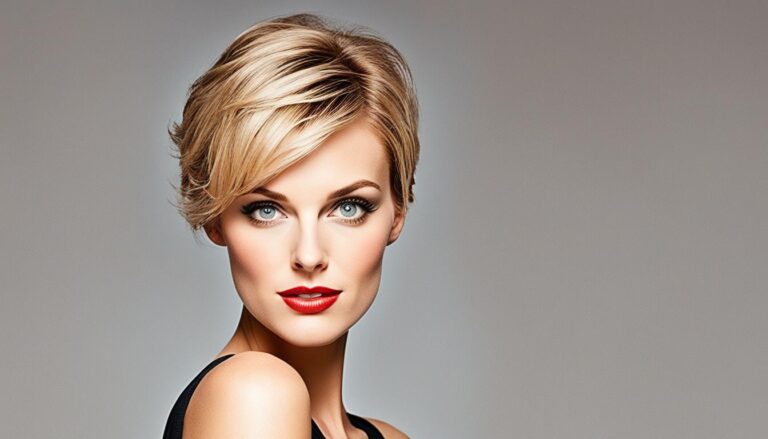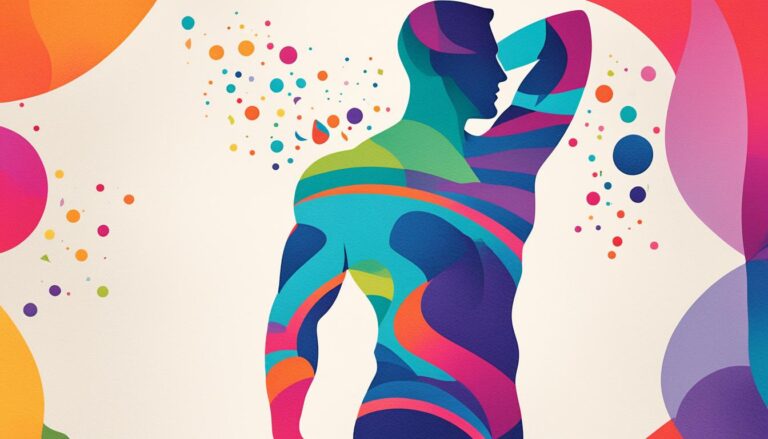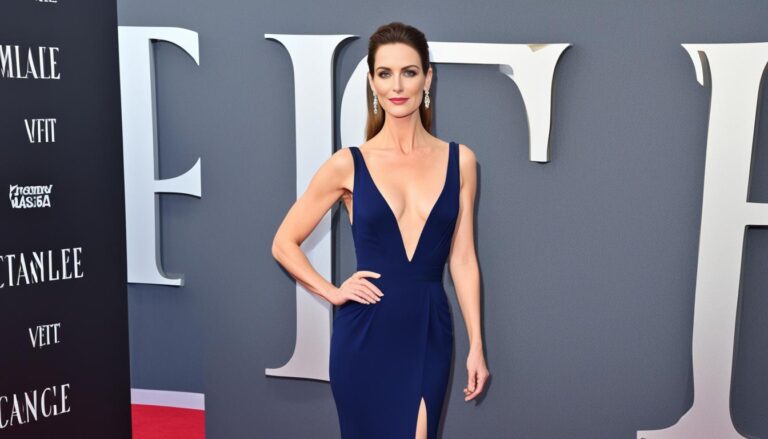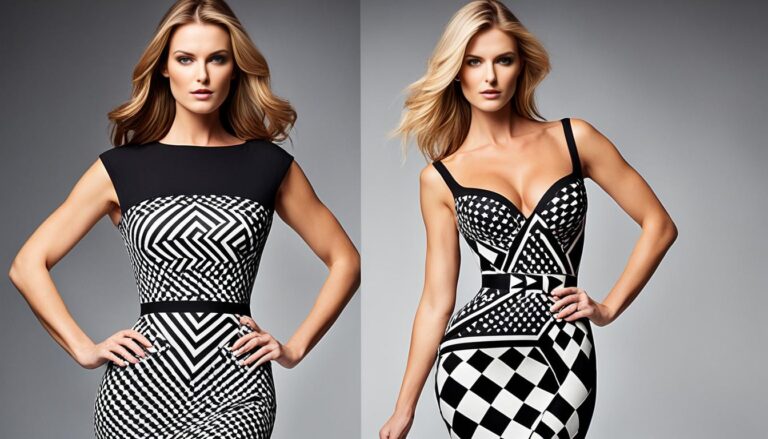What Age is the Body Most Attractive?
When it comes to attractiveness, many people believe that youth is the pinnacle of beauty. However, scientific studies have shown that different aspects of attractiveness peak at different ages. So, what age is the body most attractive? Let’s explore the fascinating science behind it.
Key Takeaways:
- Human attractiveness does not peak in youth, but rather varies with age.
- Learning a second language is easiest at around 7 or 8 years old.
- Brain processing power reaches its maximum at 18.
- Men find women in their early 20s most attractive, while women tend to prefer slightly older men.
- Life satisfaction peaks at 23, strength at 25, and the peak age to settle down is 26.
The Science Behind Attractiveness as We Age
As people age, their attractiveness can change in different ways. Physical attractiveness is influenced by factors such as facial features, body shape, and overall health. According to a survey by Allure magazine, women are considered most beautiful at 30, while men are seen as most handsome at 34. However, attractiveness is not solely based on physical appearance. Other factors, such as confidence, personality, and life experiences, also play a role in how attractive someone is perceived to be. It’s important to remember that attractiveness is subjective and can vary from person to person.

Age can bring about changes in physical appearance, but it’s not the sole determinant of attractiveness. Inner qualities, such as wisdom and emotional intelligence, also contribute to a person’s overall appeal. As we age, our life experiences shape us, and these experiences can add depth and richness to our attractiveness. Whether it’s the confidence gained from overcoming challenges or the wisdom gained from a life well-lived, these qualities can enhance our attractiveness in ways that go beyond superficial appearance.
The Impact of Confidence on Attractiveness
Confidence is an important factor in attractiveness, and it often increases with age. As we grow older, we tend to become more comfortable in our own skin and embrace our unique qualities. This self-assurance can be highly appealing to others, as it signals maturity, authenticity, and a strong sense of self. When we radiate confidence, we project an aura of attractiveness that goes beyond physical appearance and draws others towards us.
Attractiveness is a complex interplay of various factors, and age is just one piece of the puzzle. While our physical appearance may change as we age, our overall attractiveness can continue to evolve and grow. Embracing our unique qualities, valuing inner qualities, and cultivating confidence can contribute to our attractiveness at any age. The science behind attractiveness as we age is a fascinating area of study that reminds us of the multidimensional nature of beauty.
The Impact of BMI on Attractiveness
When it comes to attractiveness, body mass index (BMI) has been studied as a predictor of how appealing someone is perceived to be. BMI is a measure of body fat based on an individual’s height and weight, and it can vary significantly across different cultures. In Western countries, a BMI of around 18-20 kg/m2 is considered most attractive for females.
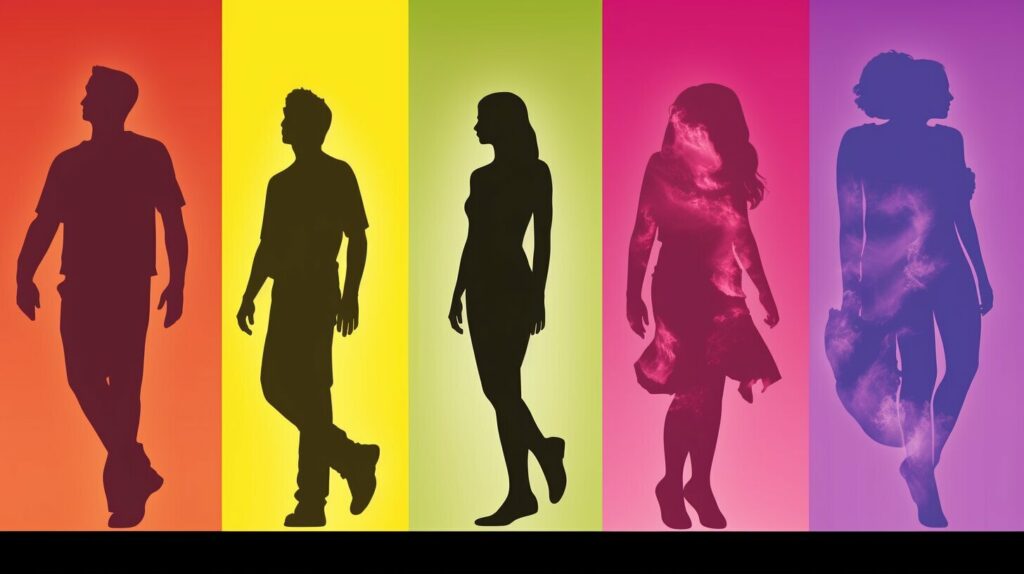
Preferences for body mass and body shape can also change with age. In a study comparing young and older adults, researchers found that young participants showed greater preferences for low BMI and body fat in both male and female bodies compared to older participants. This suggests that attractiveness judgments of body physique are not constant but change as we age.
It’s worth noting that the ideal BMI for attractiveness can vary not only by culture but also by personal preferences and individual variation. Attractiveness is influenced by many factors beyond just BMI, including facial features, body shape, and overall health. Cultural norms and societal standards can also play a role in shaping perceptions of attractiveness. Therefore, it’s important to consider BMI alongside other factors when discussing the impact of body attractiveness by age.
How Age Affects Preferences for Body Physique
Preferences for body physique can change with age. In a study comparing young and older adults, it was found that young participants showed greater preferences for low BMI and body fat in both male and female bodies compared to older participants. This suggests that attractiveness judgments of body physique are not constant but change with age.
It’s important to consider that individual preferences for body physique can also vary based on personal experiences, societal standards, and cultural influences. The media and societal pressures often portray a certain body type as the ideal, which can influence people’s preferences. However, it’s essential to recognize that beauty comes in various shapes and sizes, and everyone has different preferences when it comes to body attractiveness.
To further illustrate the impact of age on preferences for body physique, the table below provides a comparison of body mass index (BMI) preferences between young and older adults.
| Young Adults | Older Adults | |
|---|---|---|
| Preferred BMI Range | 18-22 | 22-26 |
| Preferred Body Fat Percentage | 10-15% | 15-20% |
The table shows that young adults tend to prefer a lower BMI range and body fat percentage compared to older adults. This suggests that as people age, their preferences for body physique may shift towards a slightly higher BMI range and body fat percentage. However, it’s important to note that individual variation is significant, and these preferences can differ based on personal factors, cultural backgrounds, and societal influences.
The Relationship Between Attractiveness and Fertility
When it comes to attractiveness, there is often a link between physical appearance and fertility. Both men and women tend to show preferences for traits that are associated with reproductive success. Men, for instance, tend to find women in their early 20s most attractive, as this is considered the most fertile age for women. On the other hand, women may be more inclined to prefer slightly older men, as they may be perceived as more mature and capable of providing for a family.
However, it is essential to note that individual preferences can differ, and factors such as personal experiences and cultural influences also play a significant role. Attractiveness is a complex and multifaceted concept that is not solely reliant on age or fertility. Other factors, such as personality, confidence, and overall health, contribute to how attractive someone is perceived to be. These subjective elements can greatly influence individual perceptions of attractiveness.
As with any aspect of attractiveness, there is no one-size-fits-all answer when it comes to the relationship between attractiveness and fertility. It is crucial to consider that preferences and perceptions can vary from person to person, and beauty standards differ across various cultures and societies. Embracing one’s unique qualities and valuing inner qualities, such as wisdom and emotional intelligence, can contribute to overall attractiveness at any age.
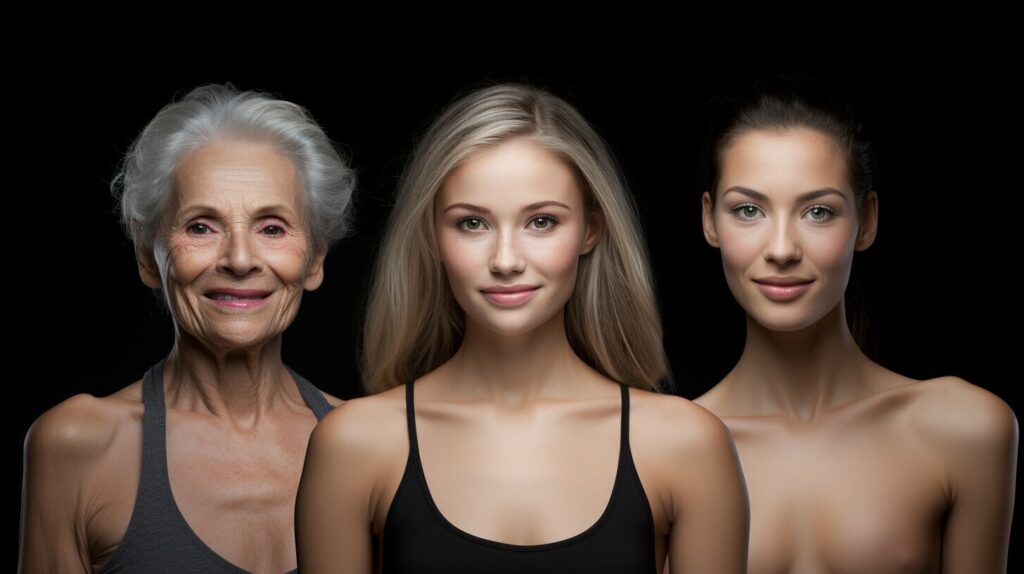
| Age | Attractiveness Perception |
|---|---|
| Early 20s | Considered most attractive for women due to fertility |
| Slightly older | Perceived as more mature and capable of providing for a family |
Quotes:
“Beauty is subjective and can be influenced by cultural norms, personal experiences, and individual variation.”
“Embracing one’s unique qualities and valuing inner qualities, such as wisdom and emotional intelligence, can contribute to overall attractiveness at any age.”
The Impact of Weight on Reproductive Health
When it comes to reproductive health, maintaining a healthy weight is crucial. Both obesity and excessive thinness can have detrimental effects on fertility and overall reproductive function. In men, obesity has been linked to decreased sperm mobility and normality, which can impact fertility. Additionally, obese men may also experience hormonal imbalances that can further affect reproductive health. On the other hand, excessive thinness, often seen in athletes or individuals with eating disorders, can lead to menstrual dysfunctions in women, resulting in reduced fertility. Therefore, it is important for both men and women to maintain a healthy weight to optimize their reproductive health.
Obesity can also increase the risk of complications during pregnancy, such as gestational diabetes, preeclampsia, and birth defects. Women who are overweight or obese may have difficulty conceiving and face challenges during assisted reproductive treatments. On the contrary, being underweight can also increase the risk of preterm birth and low birth weight, which can have long-term health consequences for the baby. Therefore, achieving and maintaining a healthy weight is not only important for reproductive health but also for the overall well-being of both parents and their future children.
It’s essential to note that weight is just one aspect of reproductive health, and many other factors can influence fertility and successful pregnancy. These factors include overall health status, lifestyle choices, underlying medical conditions, and genetic factors. Consulting with a healthcare professional can provide personalized guidance and support in optimizing reproductive health and increasing the chances of a healthy pregnancy.
| Impact of Weight on Reproductive Health | Effects |
|---|---|
| Obesity | – Decreased sperm mobility and normality in men – Increased risk of complications during pregnancy in women – Difficulties conceiving and challenges in assisted reproductive treatments |
| Excessive Thinness | – Menstrual dysfunctions in women leading to reduced fertility – Increased risk of preterm birth and low birth weight |
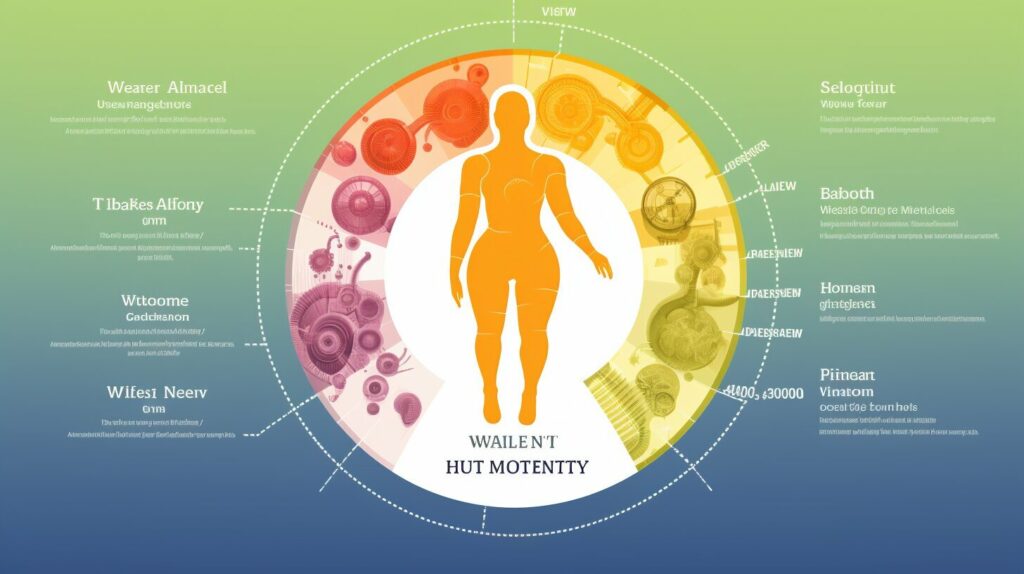
The Importance of Maintaining a Healthy Weight
Weight plays a significant role in reproductive health, and maintaining a healthy weight is crucial for both men and women. By achieving a healthy weight, individuals can optimize their chances of conception, ensure a healthy pregnancy, and reduce the risk of complications. Additionally, maintaining a healthy weight also contributes to overall well-being and improves the chances of a successful and fulfilling reproductive journey.
The Relationship Between Age and Psychological Well-Being
Psychological well-being can be influenced by age, with different age groups experiencing varying levels of well-being. A study found that life satisfaction tends to peak at 23 years old, then dips during middle age, and peaks again around 69 years old. This suggests that our satisfaction with life can vary throughout different stages of adulthood.
Additionally, our ability to understand and recognize other people’s emotions tends to peak in the 40s and 50s. This may be due to accumulated life experiences and a greater understanding of human behavior. As we age, we may become more emotionally intelligent and better equipped to navigate complex social situations.
The relationship between age and psychological well-being is complex and influenced by various factors. Individual experiences, personal circumstances, and cultural influences can all play a role in shaping our emotional and mental well-being at different stages of life.
| Age | Key Psychological Factors |
|---|---|
| 23 | Peak life satisfaction |
| 40s-50s | Peak emotional intelligence |
| 69 | Second peak in life satisfaction |
Overall, the relationship between age and psychological well-being is a dynamic one. While certain aspects of well-being may peak at specific ages, it is important to recognize that everyone’s journey is unique. Our well-being is influenced by a variety of factors, and embracing our individual experiences and personal growth can contribute to a fulfilling and satisfying life at any age.

Age and The Perception of Body Image
As we age, our perception of body image can undergo significant changes. A Gallup survey found that a large percentage of Americans over 65 reported feeling good about their physical appearance, with men’s self-perception peaking in their early 80s and women’s rates slightly lower. This suggests that as people age, they may become more accepting of their bodies and prioritize overall well-being over societal beauty standards.
Individual experiences and cultural influences also play a significant role in shaping body image perceptions. Throughout life, we are exposed to various societal messages about what is considered attractive or ideal. However, as we grow older, we may develop a more positive and realistic perspective on our bodies, valuing health, functionality, and self-acceptance over external appearance.
It’s important to note that body image perception is subjective and can vary greatly from person to person. What one individual may perceive as flaws, another may embrace as unique qualities. Cultivating a positive body image involves focusing on the aspects of ourselves that we appreciate and finding value beyond physical appearance. By prioritizing self-care, nourishing our bodies, and engaging in activities that bring us joy, we can foster a healthy and positive perception of our bodies at any age.
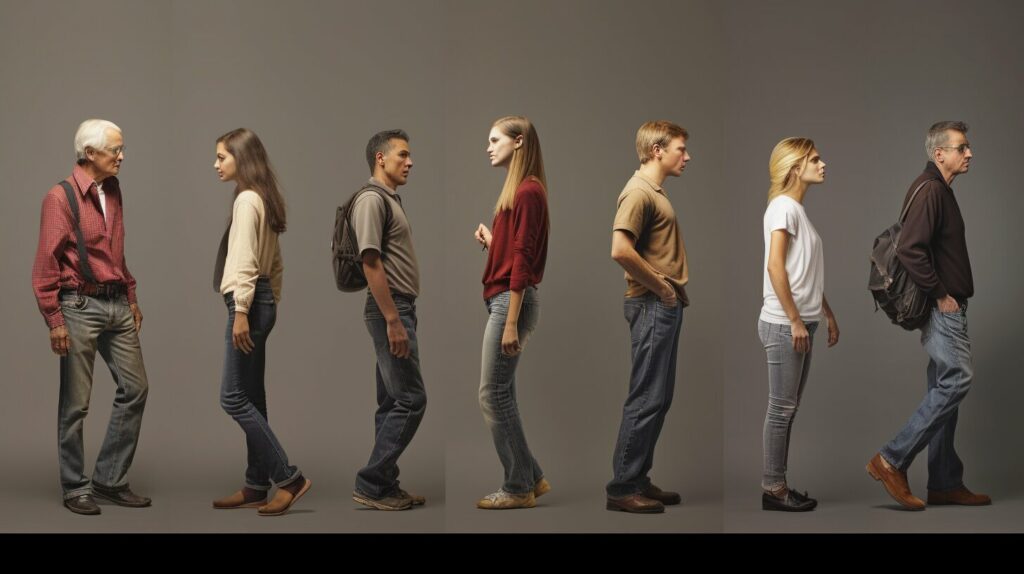
The Impact of Aging on Body Image
“As we age, we undergo physical changes that can influence our body image perception. These changes include the development of wrinkles, gray hair, and a shift in body composition. While societal beauty standards often prioritize youth and physical perfection, embracing the natural aging process can enhance our self-confidence and acceptance. Instead of striving for an unrealistic ideal, we can focus on celebrating the beauty and wisdom that comes with age.”
Age and Wisdom
Wisdom is often associated with age and the accumulated life experiences that come with it. As we grow older, we tend to gain a greater understanding of ourselves and others, leading to increased wisdom and insight. Studies have shown that older adults tend to have better decision-making skills and emotional intelligence, as well as a greater ability to see things from multiple perspectives.
One study conducted by researchers at the University of California, San Diego found that older individuals were better able to solve complex problems and make sound judgments compared to younger adults. This suggests that with age comes a depth of knowledge and experience that can shape our perspectives and decision-making abilities.
However, it’s important to note that wisdom is a complex concept that is influenced by many factors. Individual experiences, educational background, and cultural influences all play a role in shaping our wisdom. Additionally, wisdom is not limited to older adults and can be cultivated at any age through self-reflection, learning, and personal growth.
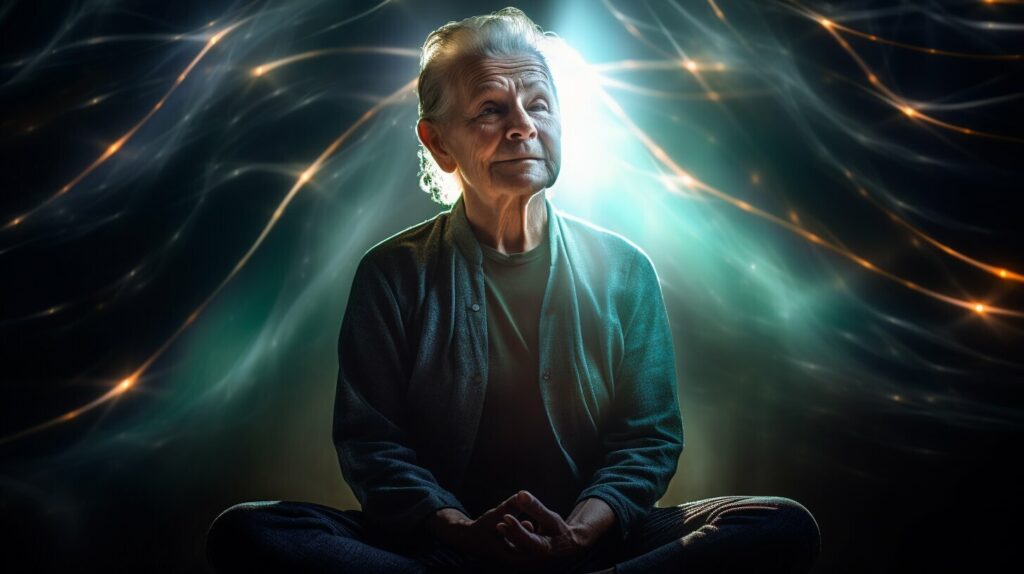
In conclusion, age is often associated with wisdom due to the accumulation of life experiences and the ability to see things from multiple perspectives. However, wisdom is not solely determined by age and can be cultivated at any stage of life. It is a multifaceted concept that is influenced by various factors. Embracing our unique qualities and valuing inner qualities, such as wisdom and emotional intelligence, can contribute to our overall attractiveness at any age.
The Role of Age in Making Life Decisions
Age can play a significant role in shaping the timing of major life decisions. Research suggests that individuals approaching a round-numbered birthday, such as 29, 39, 49, or 59, are more likely to make significant changes in their lives. These “9-enders” may feel a sense of urgency or a desire to make the most of their time before reaching a milestone age. Whether it’s starting a new relationship, seeking new experiences, or pursuing personal goals, these decisions can be influenced by the perceived significance of reaching a new decade.
It’s important to note that individual experiences and personal circumstances can also impact the timing of life decisions. While some individuals may feel motivated to make changes as they approach a milestone age, others may find that their life choices are driven by factors such as career transitions, family responsibilities, or personal growth. The decision-making process can be complex and multifaceted, with age serving as just one of many factors that individuals consider when making significant life choices.
“The decision to make major life changes can be influenced by a variety of factors, including age, personal circumstances, and individual goals and values.” – Dr. Emily Johnson, Psychologist
Ultimately, the role of age in making life decisions is subjective and can vary from person to person. Age can provide individuals with unique perspectives, life experiences, and wisdom that can shape their decision-making processes. However, it’s essential to recognize that age should not be the sole determining factor when considering making significant changes in one’s life. It’s crucial to consider individual goals, values, and personal circumstances to make decisions that align with one’s overall well-being and happiness.
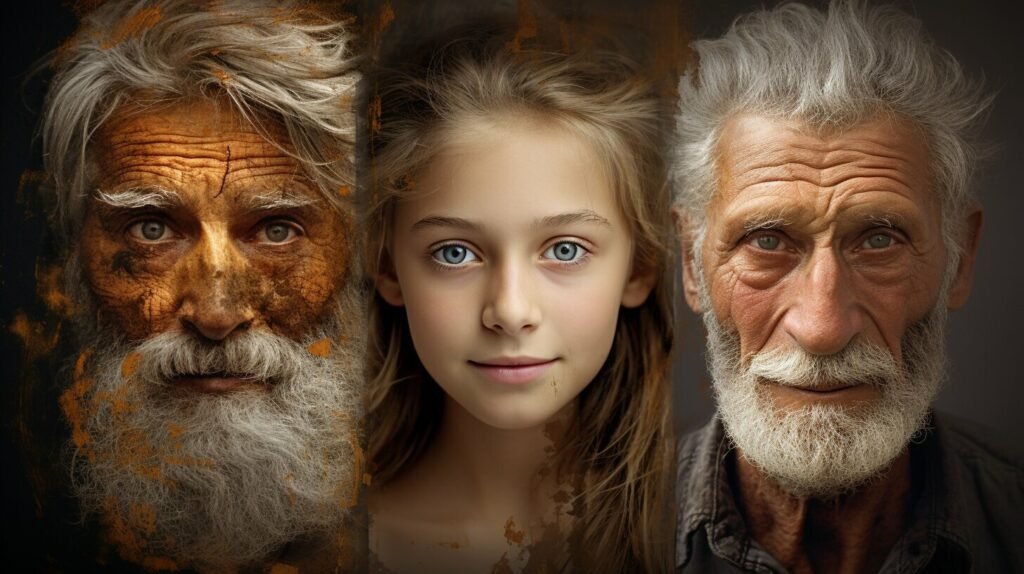
| Life Decision | Optimal Age Range |
|---|---|
| Starting a new relationship | 20s – 30s |
| Changing careers | 30s – 40s |
| Starting a family | Late 20s – 30s |
| Pursuing personal goals | 30s – 40s |
| Retirement planning | 50s – 60s |
Age can provide individuals with a unique perspective and opportunities for growth and self-discovery. It’s important to embrace the present moment and make life decisions based on personal values, goals, and circumstances. Whether it’s pursuing new relationships, career changes, or personal goals, the right time to make a significant life decision is ultimately a personal choice, influenced by a variety of factors.
Conclusion
After exploring the various aspects of attractiveness across different age groups, it is evident that there is no one optimal age for physical attractiveness. Different factors contribute to attractiveness at different stages of life, and individual preferences play a significant role.
Body attractiveness varies with age, with men typically finding women in their early 20s most attractive. However, attractiveness is not solely based on physical appearance, as confidence, personality, and life experiences also have an impact. Preferences for body physique can change with age, as demonstrated by differences in preferences between younger and older adults.
It’s important to note that attractiveness is subjective and influenced by cultural norms and personal experiences. Embracing one’s unique qualities and valuing inner qualities, such as wisdom and emotional intelligence, can contribute to overall attractiveness at any age. While age may influence certain aspects of attractiveness, it should not be the sole determining factor in one’s self-worth or perception of beauty.
FAQ
What age is considered the most attractive for the body?
Different aspects of attractiveness peak at different ages. For physical attractiveness, women are considered most beautiful at 30, while men are seen as most handsome at 34. However, attractiveness is subjective and can vary from person to person.
How does age affect preferences for body physique?
Preferences for body physique can vary with age. Younger individuals tend to show greater preferences for low body mass index (BMI) and body fat in both male and female bodies compared to older individuals. However, individual preferences for body physique can also vary based on personal experiences, societal standards, and cultural influences.
Is there an optimal age for physical attractiveness?
There is no universally optimal age for physical attractiveness. Different aspects of attractiveness peak at different ages, and attractiveness is subjective and can vary from person to person.
Does attractiveness relate to fertility?
The perception of attractiveness is often linked to fertility. Men tend to find women in their early 20s most attractive, as this is the most fertile age for women. Women may prefer slightly older men, as they may be perceived as more mature and capable of providing for a family. However, individual preferences can differ, and factors such as personal experiences and cultural influences also play a role.
How does weight impact reproductive health?
Both obesity and excessive thinness can affect fertility. Obesity is associated with decreased sperm mobility and normality in men, as well as an increased risk of miscarriage and birth defects in women. Excessive thinness can lead to menstrual dysfunctions and reduced fertility. Maintaining a healthy weight is important for reproductive health.
How does age affect psychological well-being?
Psychological well-being can be influenced by age. Life satisfaction tends to peak at 23, dip in middle age, and then peak again around 69 years old. The ability to understand and recognize other people’s emotions tends to peak in the 40s and 50s. These findings suggest that emotional intelligence and overall well-being can change throughout the lifespan.
Does age impact the perception of body image?
The perception of body image can change with age. As people age, they may become more accepting of their bodies and prioritize overall well-being over societal beauty standards. Individual experiences and cultural influences can also play a significant role in shaping body image perceptions.
Does age correlate with wisdom?
Studies have shown that older adults tend to have better decision-making skills, emotional intelligence, and an ability to see things from multiple perspectives. This suggests that as people age, they may gain a greater understanding of themselves and others, leading to increased wisdom and insight. However, wisdom is influenced by many factors, and individual experiences can vary.
Does age influence major life decisions?
Research has shown that people approaching a round-numbered birthday, such as 29, 39, 49, or 59, are more likely to make major life changes. This includes both positive and negative decisions. These “9-enders” may feel a sense of urgency or a desire to make the most of their time before reaching a milestone age. However, individual experiences and personal circumstances can also influence the timing of major life decisions.

